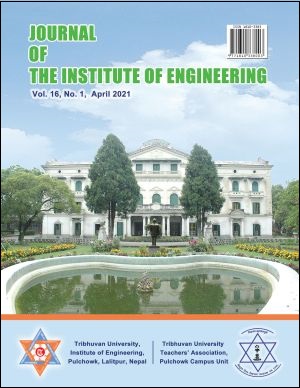Analysis of Micro Facial Expression by Machine and Deep Learning Methods: Haar, CNN, and RNN
DOI:
https://doi.org/10.3126/jie.v16i1.36562Keywords:
Micro expression, Convolutional Neural Network, Long Short-term MemoryAbstract
Facial expressions are due to the actions of the facial muscles located at different facial regions. These expressions are two types: Macro and Micro expressions. The second one is more important in computer vision. Analysis of micro expressions categorized by disgust, happiness, anger, sadness, surprise, contempt, and fear are challenging because of very fast and subtle facial movements. This article presents one machine learning method: Haar and two deep learning methods: Convolution Neural Network (CNN) and Recurrent Neural Network (RNN) to perform recognition of micro-facial expression analysis. First, Haar Cascade Classifier is used to detect the face as a pre-image-processing step. Secondly, those detected faces are passed through series of Convolutional Neural Network (CNN) layers for the features extraction. Thirdly, the Recurrent Neural Network (RNN) classifies micro facial expressions. Two types of data sets are used for training and testing of the proposed method: Chinese Academy of Sciences Micro-Expression II (CSAME II) and Spontaneous Actions and Micro-Movements (SAMM) database. The test accuracy of SAMM and CASME II are obtained as 84.76%, and 87% respectively. In addition, the distinction between micro facial expressions and non- micro facial expressions are analyzed by the ROC curve.
Downloads
Downloads
Published
How to Cite
Issue
Section
License
The Copyright is held by Journal of the Institute of Engineering, IOE, TU




